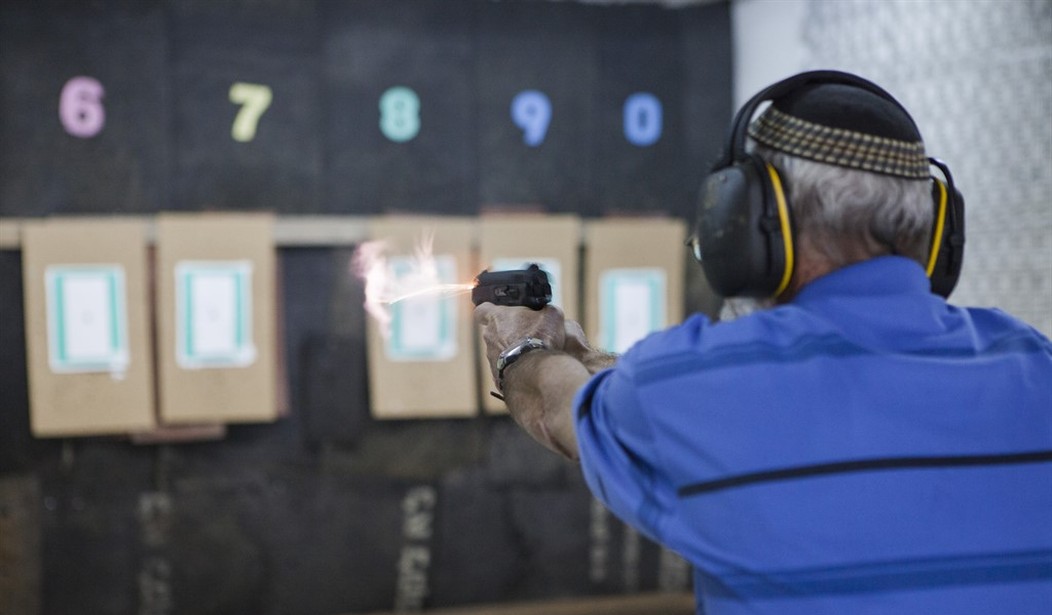Last week I wrote about a new lawsuit filed in New York by the members of a couple of Jewish congregations who can no longer lawfully carry their concealed firearms while attending synagogue thanks to the new “sensitive places” designation by Democratic lawmakers. Their first request was for a temporary restraining order prohibiting the state from enforcing that portion of the Concealed Carry Improvement Act; a request that was denied on Monday afternoon by U.S. District Judge Vernon S. Broderick.
In his ruling, the Obama-appointed judge (who also has political ties to gun control fans Michael Bloomberg and former NY Gov. Andrew Cuomo) found that the plaintiffs had not met the requirements for a TRO, starting with a requirement that ““irreparable injury will be caused absent prompt judicial intervention in circumstances where the adversary cannot be contacted, or where advance contact with the adversary would itself be likely to trigger irreparable injury.” According to Broderick, the fact that the plaintiffs in the case must put themselves at risk of being unable to protect themselves or congregants in case of an attack, choose not to attend synagogue, or choose to carry in violation of state law isn’t evidence of irreparable injury.
The “irreparable harm” described by counsel includes Plaintiffs being deterred from attending services and engaging in religious observance outside the synagogue, and having to limit their participation in religious activities at the synagogue because of their fear that, without armed protection, the synagogue will be the target of anti-Jewish attack. Without reaching the issue of whether this showing could support some form of preliminary injunctive relief, I find that the harm pled is too remote and speculative, and fails to reach the stringent standard of “immediate irreparable harm.”
I could not disagree more with Broderick. Not only are the Second Amendment rights of the plaintiffs being violated here, their First Amendment rights are being harmed as well thanks to the state’s decision to tell houses of worship how they can and can’t protect themselves or their flock. Is this harm irreparable? Well, as long as the laws are being enforced I’d say yes. While the judge calls the impact of these laws “remote and speculative”, the fact is that these laws are already having an impact on the plaintiffs, as their original complaint made clear.
For several years, [Stephen] Goldstein has been licensed by the City of New York to carry a concealed firearm on Bnei Matisyahu’s premises.
Since originally obtaining that permit, Goldstein has always carried a concealed firearm within the premises of Bnei Matisyahu’s synagogue. He did this because of the high incidence of anti-Jewish hate crime throughout the City of New York, including within the Midwood section of Brooklyn, and throughout the state and country.
Goldstein is apprehensive that he, his family and his congregation will be targeted for acts of violence because of their Jewish faith, and therefore he desired and continues to desire to carry a handgun while at his synagogue for the defense of himself, his family and his congregation.
Bnei Matisyahu’s synagogue is conspicuously marked with a plaque that identifies it as such. Further, Bnei Matisyahu’s members and congregants wear attire, such as the kippah (head coverings), tzitzit (fringes) and the tallit (prayer shawl), which conspicuously identifies them as members of the Jewish faith.
For as long as Goldstein has carried a concealed firearm at Bnei Matisyahu, the members and congregants of Bnei Matisyahu have been aware that he was doing so and have approved of him doing so. Those members expressed to Goldstein that they were and are fearful that Bnei Matisyahu will be the target of anti-Jewish hate, and they are apprehensive that without Goldstein’s armed protection at the synagogue, they will be the victims of violent physical attacks. Goldstein shares that fear. Those members told Goldstein that if he did not carry the concealed handgun at Bnei Matisyahu, they would be too fearful to attend religious services, they would stop being members of Bnei Matisyahu, and they would end their financial support to the congregation.
In my non-lawyer opinion, the infringement on both the right to bear arms and the ability to worship free of government interference are both implicated by New York’s newly-imposed blanket ban on concealed carry in religious centers, and Broderick should have suspended the enforcement of this provision while the case is being litigated. There’s actually still a chance that the judge will do the right thing here, though it will take several weeks of delay. Broderick ordered the parties to show up on October 28th for oral arguments on a similar request for an injunction blocking enforcement of the law while its constitutionality is being debated, but if he found the alleged harm suffered by the plaintiffs to be too “remote and speculative” to issue a TRO, I’m not sure why he would come to a different conclusion on an injunction.
By then it might be a moot point, with another federal judge in Syracuse currently weighing whether or not to issue a broader injunction against many of the newly designated “sensitive places” off-limits to lawful concealed carry. A hearing was held last Friday and U.S. District Judge Glenn Suddaby’s decision could come at any time, though as we reported Suddaby indicated he might be willing to throw the state a lifeline by staying his decision pending appeal. For the moment, then, New York Democrats are still blocking the doors of the state’s synagogues, churches, mosques, and other houses of worship to all those law-abiding citizens who wish to carry inside to protect themselves and others; a law that that could send concealed carry holders to prison for several years if they violate it, but one that won’t stop any committed killers from strolling into a “gun-free zone” while illegally armed in order to slaughter the worshippers inside.









Join the conversation as a VIP Member